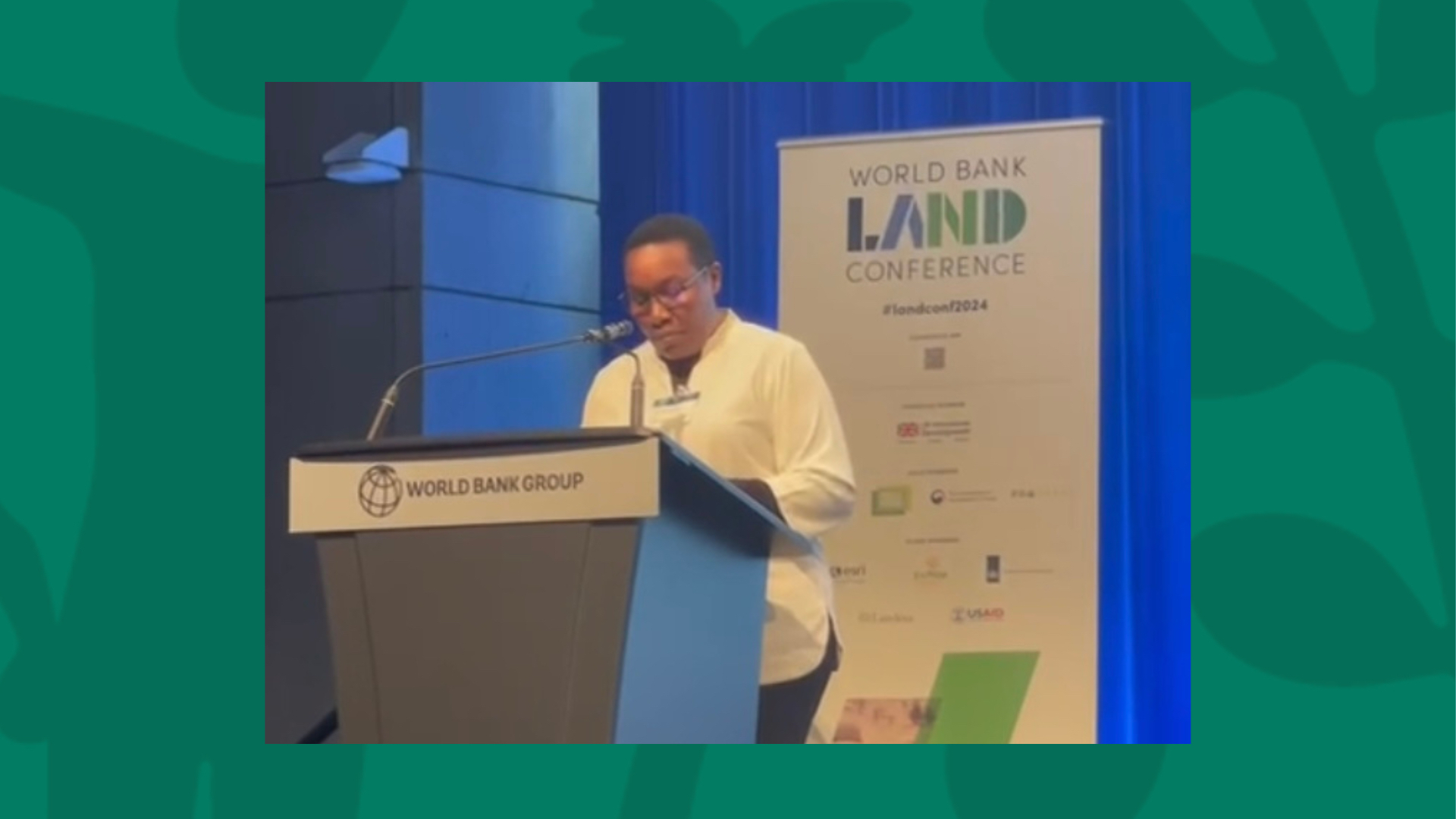2024-06-10
By Jeremy Gaunt
At the recent World Bank Land Conference 2024, Margaret Rugadya, Tenure Facility’s African Regional Coordinator, delivered a compelling message on the crucial role of land rights in climate action. In an interview, she shared her key takeaways from the conference, emphasising the indispensable link between secure land tenure and effective environmental conservation.
She also highlighted the importance of integrating land and climate sectors, empowering women, and recognising Indigenous Peoples as shareholders in climate solutions. In this Q&A, Rugadya delves deeper into these themes, offering valuable perspectives on the path forward for sustainable land management and climate resilience.
Margaret Rugadya (MR): I have three essential takeaways from this meeting. The first one is about the role of land tenure in supporting climate action. Secure tenure rights are crucial for climate action, especially nature-based solutions. We need to legally recognise those who live in, with, and work with nature and design land administration and management systems that support this. Without secure land rights, conversations around carbon markets are not realistic because land rights are integral to carbon rights.
Secondly, we must ensure free, prior, and informed consent (FPIC) for Indigenous Peoples and local communities, particularly women. Women are often the face of climate action as they interact with nature daily. They need to be included in leadership, benefit-sharing, and negotiations to motivate their continued contribution to environmental protection.
Thirdly, the integration of land and climate sectors is essential. Currently, these sectors often operate separately, but they need to collaborate to formulate effective climate actions. We need to see more intersectoral collaboration at the country level to ensure cohesive efforts.

Tenure Facility’s African Regional Coordinator Margaret Rugadya speaking at the World Bank Land Conference 2024.
MR: We shared experiences from women involved in collective land and forest rights in Brazil, Nepal, and the Democratic Republic of Congo. These women have successfully organised themselves to achieve recognition and control over their lands. For example, These examples highlight the importance of recognising and supporting women’s roles in climate action.
MR: Yes, several ideas stood out. One was the potential of repurposing community forest reserves from logging to carbon offsetting. Organised communities can use carbon markets to sustain their forests by treating carbon as a resource to benefit from rather than have their community forests over exploited. Another idea was viewing Indigenous Peoples not just as contributors to climate solutions but as shareholders, because they are using their own forest resources as input to the climate solution.
Granting them legal rights over their forest makes them key stakeholders, not just contributors. Lastly, we need to think more about landscapes and territories rather than just land and forests as individual property in land administration. Recognising the broader environmental and socio-cultural significance of land and forests is crucial.
"We need to legally recognise those who live in, with, and work with nature and design land administration and management systems that support this."
MR: We need to continue our work and focus on a few key areas. First, we must evaluate how much of the resources pledged at COP27 have reached Indigenous Peoples and how future pledges can be structured to improve accessibility. This involves learning from current funders and exploring innovative ways to ensure resources reach the ground effectively.
Second, we need to facilitate exchanges between different communities. By learning from each other’s successful approaches to land management and climate action, communities can adopt and adapt effective strategies. This is crucial for sustaining long-term environmental and social benefits.
Lastly, we need to strengthen support for environmental defenders. They play an essential role but often face significant risks. We must develop protective measures that go beyond human rights frameworks, ensuring they are culturally and socially appropriate and that communities themselves are involved in safeguarding these defenders.
Q: Is there anything else you’d like to add?
MR: Just that it’s crucial for all stakeholders to remain committed and innovative in their approaches. The challenges we face require collective effort and constant adaptation.
This interview has been condensed and edited for clarity.
Articles